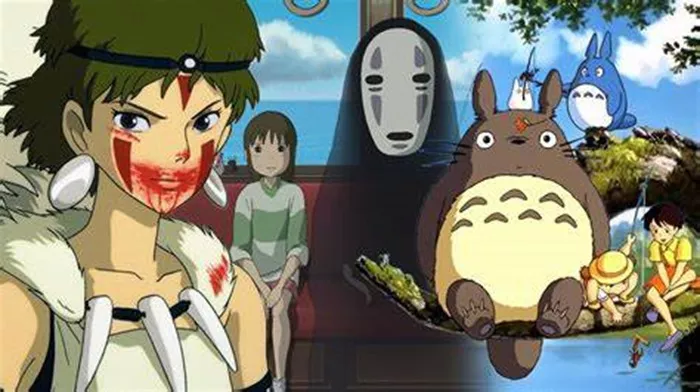Studio Ghibli, the Japanese animation film studio renowned for its captivating storytelling and stunning animation, has captivated audiences worldwide. Disney, one of the largest and most influential media conglomerates, has a significant presence in the animation industry. Given the close association between Studio Ghibli and Disney in terms of distribution and promotion in Western markets, there is often confusion about the ownership and relationship between these two giants of animation. This article aims to clarify the nature of this relationship and address whether Studio Ghibli is owned by Disney.
Studio Ghibli
Studio Ghibli was founded in 1985 by directors Hayao Miyazaki and Isao Takahata, along with producer Toshio Suzuki. The studio quickly gained a reputation for producing high-quality animated films that combine imaginative storytelling with deep emotional and philosophical themes. Films such as “My Neighbor Totoro,” “Spirited Away,” “Princess Mononoke,” and “Howl’s Moving Castle” have become classics, beloved by audiences around the world.
Disney’s Role in the Global Animation Market
Disney, founded in 1923 by Walt Disney and Roy O. Disney, is a leading force in the global entertainment industry. Known for its iconic characters and groundbreaking animated features, Disney has played a pivotal role in shaping the landscape of animation. The company’s extensive distribution network and marketing prowess have helped bring many animated films to international audiences.
The Partnership Between Studio Ghibli and Disney
Distribution Agreement
In the late 1990s, Disney entered into a partnership with Studio Ghibli to distribute its films outside Japan. This agreement allowed Disney to handle the distribution, marketing, and dubbing of Ghibli films in North America and other Western markets. The partnership began with the release of “Princess Mononoke” in 1999, followed by other Ghibli classics.
Influence on Studio Ghibli Films
While Disney’s role in the distribution and promotion of Studio Ghibli films has been significant, it is important to note that Disney has had little to no creative influence on the production of Ghibli’s films. The artistic direction, storytelling, and animation style remain distinctly Ghibli, driven by the vision of its founders and creative team.
See Also: princess mononoke age rating
Ownership and Independence
Studio Ghibli’s Ownership Structure
Studio Ghibli remains an independent entity, owned by its founders and stakeholders in Japan. The studio’s commitment to creative freedom and artistic integrity has been a cornerstone of its philosophy, allowing it to produce films that reflect its unique style and vision.
Disney’s Role as a Distributor
Disney’s role has been primarily that of a distributor and promoter of Studio Ghibli films in international markets. This partnership has enabled Ghibli’s films to reach a wider audience, but it does not imply ownership or control over the studio. Disney’s involvement has been limited to ensuring that Ghibli’s films are accessible and appreciated by non-Japanese audiences.
The Impact of the Partnership
Increased Global Reach
The partnership between Studio Ghibli and Disney has significantly increased the global reach of Ghibli’s films. Disney’s distribution channels and marketing expertise have helped bring Ghibli’s masterpieces to theaters, home video, and streaming platforms worldwide, introducing millions of new fans to the studio’s work.
Cultural Exchange
The collaboration has also facilitated a cultural exchange between Japan and the West, allowing audiences to appreciate the artistry and storytelling traditions of Japanese animation. Ghibli’s films, with their universal themes and emotional depth, have resonated with viewers across cultural boundaries.
Common Misconceptions
Misunderstanding of Ownership
One common misconception is that Disney owns Studio Ghibli due to their close association in distribution. However, as clarified earlier, Studio Ghibli remains an independent studio, and Disney’s role is limited to distribution and promotion.
Creative Control
Another misconception is that Disney has creative control over Ghibli’s films. In reality, Ghibli’s creative team maintains full control over the production of their films, ensuring that the studio’s unique vision and artistic integrity are preserved.
The Future of Studio Ghibli and Disney
Evolving Distribution Strategies
With the rise of digital streaming platforms, the landscape of film distribution is evolving. Both Studio Ghibli and Disney have adapted to these changes, with Ghibli’s films becoming available on various streaming services, including HBO Max in the United States. This shift reflects a broader trend in the industry and underscores the importance of accessibility in the digital age.
Continued Collaboration
While the nature of the collaboration between Studio Ghibli and Disney may evolve, it is likely that the partnership will continue to benefit both parties. Disney’s distribution network remains a valuable asset for Ghibli, while Ghibli’s films enhance Disney’s portfolio of high-quality animated content.
The Significance of Studio Ghibli’s Independence
Creative Freedom
Studio Ghibli’s independence is crucial to its ability to produce films that reflect its founders’ artistic vision. The studio’s commitment to creative freedom has resulted in a body of work that is celebrated for its originality, emotional depth, and visual beauty.
Artistic Integrity
Maintaining independence allows Studio Ghibli to uphold its artistic integrity, ensuring that its films are not influenced by external commercial pressures. This integrity is evident in the studio’s meticulous attention to detail, storytelling, and character development.
Conclusion: Clarifying the Relationship
In conclusion, while Studio Ghibli and Disney have a close partnership, particularly in the realm of distribution and promotion, Studio Ghibli remains an independent studio. Disney does not own Studio Ghibli, nor does it exert creative control over its films. This partnership has, however, been mutually beneficial, allowing Ghibli’s films to reach a global audience and contributing to a greater appreciation of Japanese animation worldwide.
The collaboration between these two iconic entities exemplifies the power of cultural exchange and the importance of preserving artistic integrity. As the entertainment industry continues to evolve, the legacy of Studio Ghibli and its unique relationship with Disney will undoubtedly endure, continuing to inspire and captivate audiences around the world.

